What You Need to Know About Renter’s Insurance in Florida
- Author:by The HOMEiA Team
- Category: Insurance

Renting a property comes with inherent risks, such as accidental damage or theft, which can lead to significant financial loss without proper planning and management. This is particularly true in Florida, a state known for its unique climatic conditions and higher likelihood of natural disasters, such as hurricanes and floods.
Renter’s insurance is a critical tool for anyone leasing a home or apartment to safeguard against these risks. This insurance protects your personal belongings and covers any possible liabilities or additional living expenses incurred due to damage of a rented property. Understanding the specifics of renter’s insurance in Florida is vital due to the state’s unique climatic challenges and insurance requirements. It is extremely important to have a comprehensive policy that adequately covers potential losses, especially in a region prone to damage.
This article will help Florida residents choose the right renter’s insurance coverage for your personal needs in the most secure and easy manner possible. Understanding the full scope of renter’s insurance options available will empower all Florida renters to make more informed decisions while purchasing insurance, enhance your financial security, and afford renters peace of mind over their hard-earned lifestyle in the Sunshine State.
Table of Contents:
1. What is Renter’s Insurance?
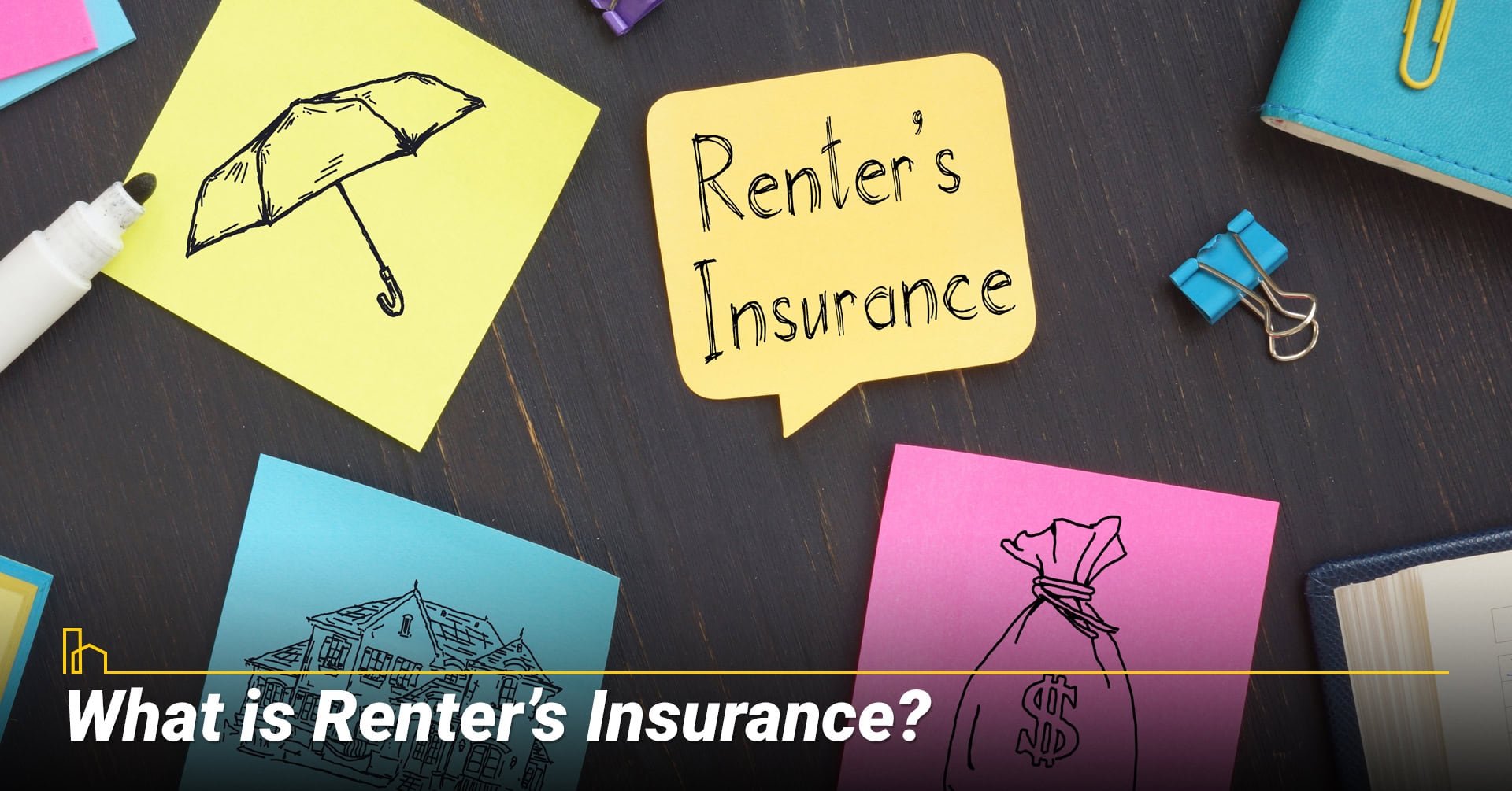
Renter’s insurance is a form of property insurance that provides coverage for a renter’s personal belongings, liabilities, and sometimes additional living expenses in the event of damage or loss due to various incidents. This type of insurance is designed specifically for individuals who do not own the property in which they reside but want to protect their possessions and shield themselves from potential liabilities.
Renter’s insurance typically includes three key types of coverage:
- A. Personal Property Coverage: This type of coverage compensates you for the loss or damage of personal items such as clothing, furniture, electronics, and other belongings in your rental unit due to causes like fire, theft, vandalism, plumbing and electrical malfunctions, and certain weather-related damage. The extent of coverage depends on the policy but usually excludes natural disasters like floods or earthquakes, which may require additional policies.
- B. Liability Protection: This covers legal costs or medical bills that you might be responsible for if someone is injured at your rental property or if you accidentally cause injury to others. For example, if a guest slips and falls in your apartment or you accidentally start a fire that damages other units, this coverage can help pay for legal or medical expenses.
- C. Additional Living Expenses (ALE): If your rental unit becomes uninhabitable due to covered incidents, such as fire or storm damage, ALE helps cover the cost of temporary housing and other living expenses while your rental is being repaired.
Many renter’s underestimate the value of their belongings and the potential cost of replacing them. Renter’s insurance provides an affordable way to recover from losses without major financial strain. Moreover, liability coverage is crucial for protecting against lawsuits that could financially devastate a renter.
15 Essential Steps for Moving to a New City
If you’re moving to a new city, though, the process is even more complicated. Without the ability to make a quick trip here and there, you’ll need a detailed plan to keep everything running smoothly. This guide to relocation will help you make a plan and check all the boxes so your move will be as painless as possible…
2. Who Needs Renter’s Insurance?
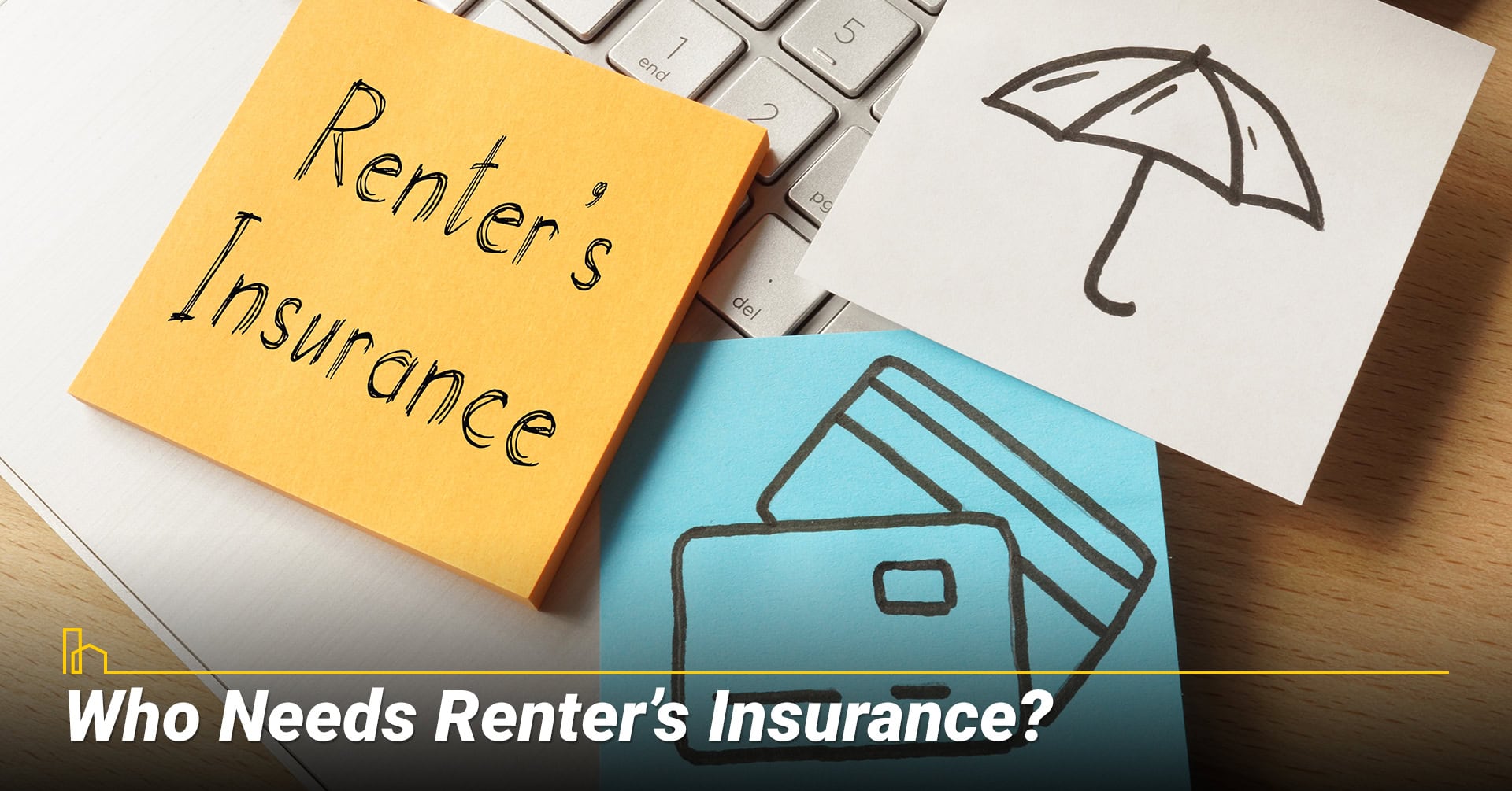
Essentially, any tenant can benefit from renter’s insurance. Renter’s insurance offers a blanket of financial protection for your personal property and legal responsibilities for all tenants, including a college student renting your first apartment, a family leasing a home, or a retiree settling into a leased condo.
Florida’s unique climate and geographical attributes make obtaining renter’s insurance especially important. The state is prone to hurricanes, flooding, and other natural disasters. While standard renter’s insurance policies in Florida cover events like windstorms and lightning, they typically do not cover flood damage, and might require additional flood insurance.
3. Comparing Renter’s Insurance Rates Across States
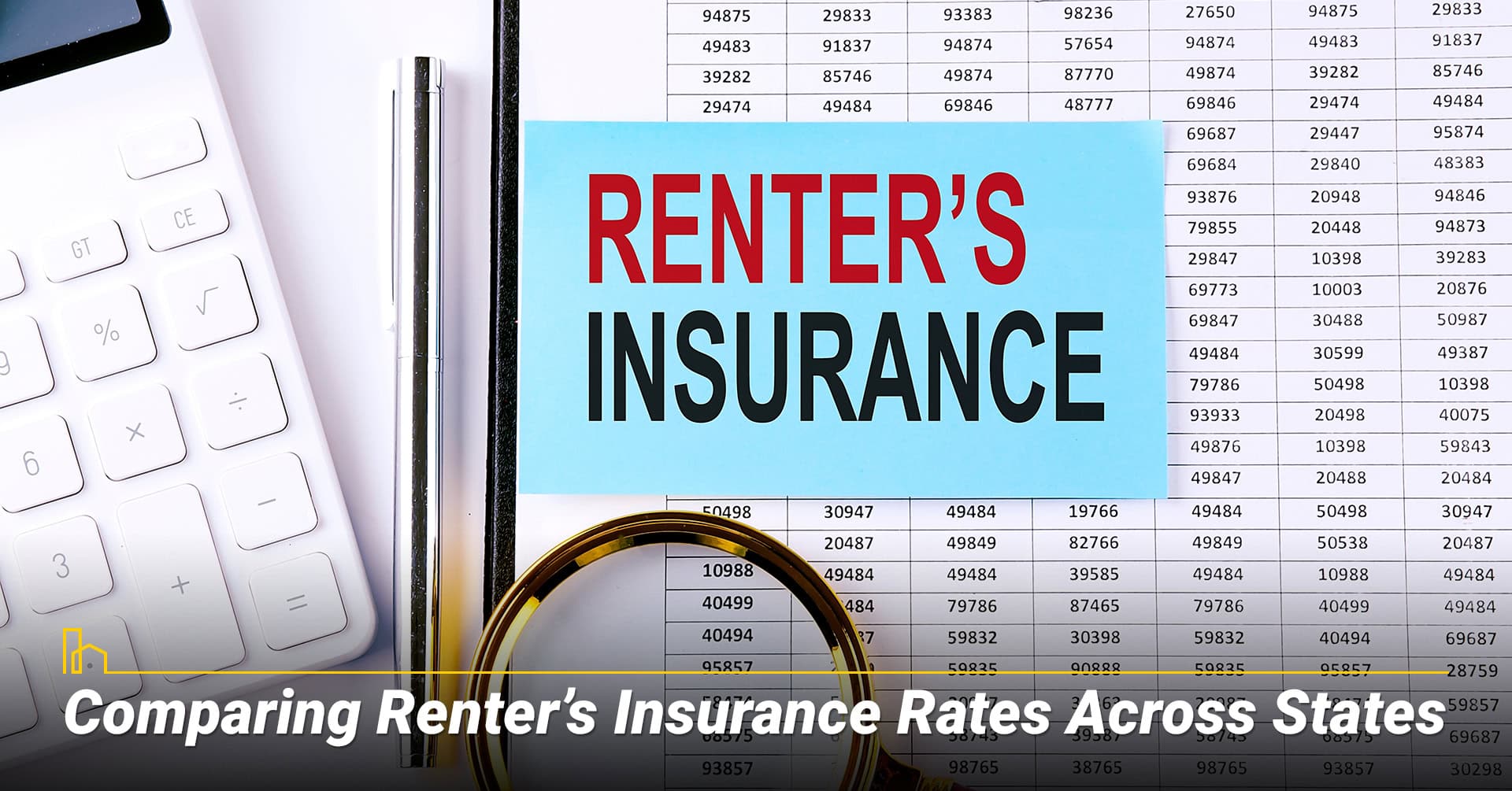
There is a notable difference in renter’s insurance rates in Florida compared to many other states. This variation is mostly due to from Florida’s higher exposure to natural disasters, particularly hurricanes and severe storms, which increase the risk of substantial property damage. Insurers account for these increased risks by setting higher premiums.
The geographic location within the state can also significantly affect rates. For instance, properties along the coast are generally more susceptible to storm surges and hurricane damage, which often results in higher insurance costs than inland properties. Additionally, urban areas might see higher rates due to increased risks of theft and vandalism compared to more rural locations.
Another factor that influences the rates is the coverage options chosen by the renter. Policies that include comprehensive coverage for hurricane damage or replacement costs for personal property will typically have higher premiums than basic coverage plans.
Moreover, the insurance market in Florida is somewhat strained; insurers frequently adjust their offerings in response to the changing landscape of risk and regulatory adjustments. This can lead to fluctuations in insurance rates and available coverage options. Consequently, Florida renter’s are advised to actively compare multiple insurers and seek updated quotes to ensure they receive the best coverage at the most competitive rates, taking into account all these local factors and personal circumstances.
30 Best Packing Tips for Moving to a New City
How do you get everything safely from Point A to Point B on a tight schedule? With a lot of planning. Here are our best tips to make the process of moving to a new city as smooth as possible…
4. How to Find the Right Renter’s Insurance Policy in Florida for Your Unique Needs
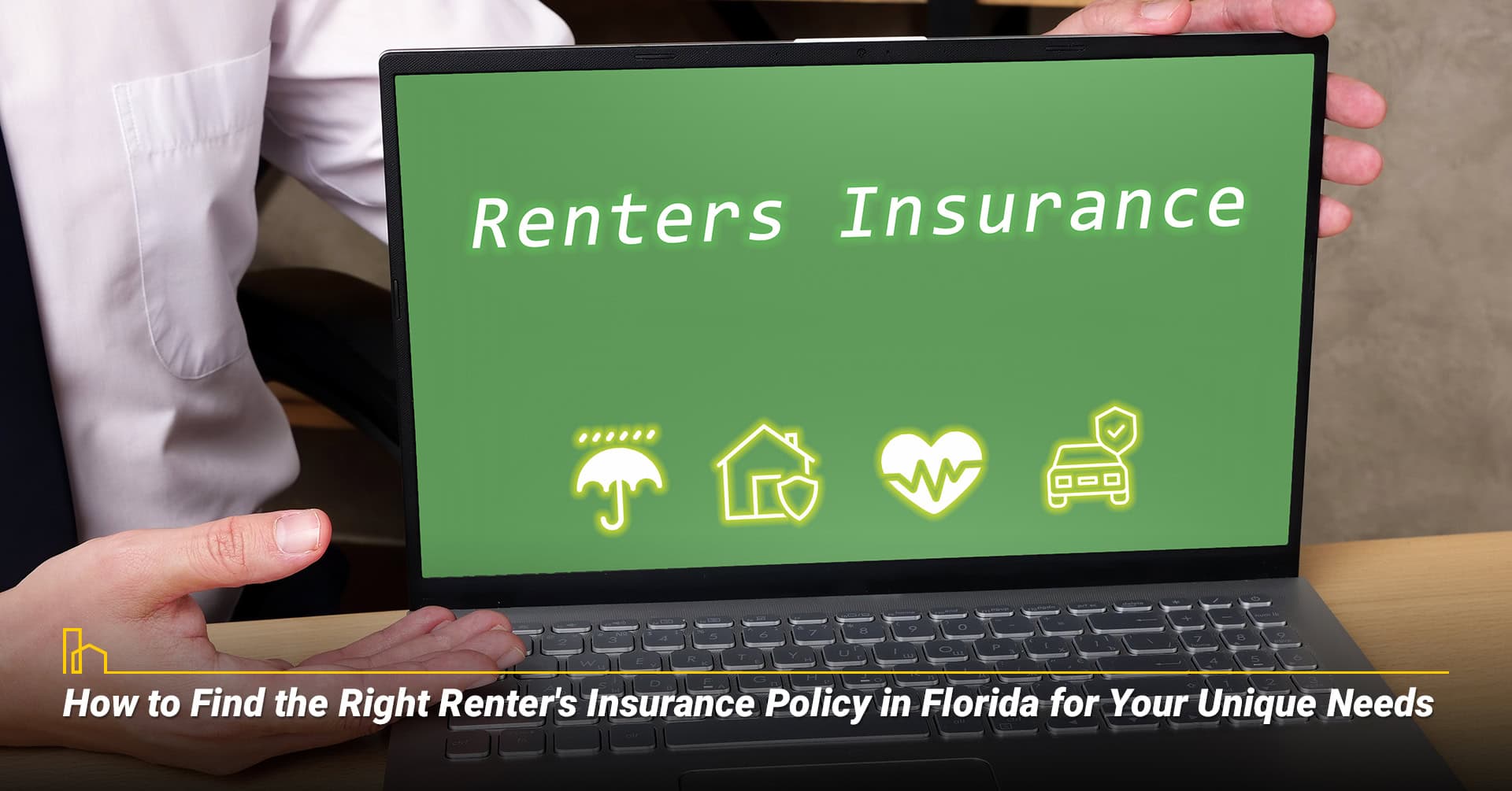
Finding the right renter’s insurance policy in Florida requires understanding your unique needs, evaluating various insurance offerings, and making informed decisions based on a thorough comparison of what’s available. Here are detailed steps to guide you through selecting a policy that best fits your situation:
- A. Assess Your Needs: Begin by taking inventory of your personal property to determine the total value of your items. This will help you understand how much coverage you need. Also, consider your living situation and potential risks specific to your area—like flood zones or high crime rates—that might require additional endorsements or coverage.
- B. Understand the Different Types of Coverage Available: Familiarize yourself with the types of coverage typically offered by renter’s insurance policies in Florida. These include:
- Personal Property Coverage: Protects your belongings in case of theft, damage, or destruction.
- Liability Coverage: Offers protection if you’re held legally responsible for injury to others or damage to their property.
- Loss of Use Coverage: Provides financial assistance for living expenses if your rental becomes uninhabitable due to a covered peril.
Additionally, consider whether you need supplemental policies for floods or hurricanes, which are common in Florida but often not covered under standard renter’s insurance policies.
- C. Compare Policies from Different Companies: Shop around to obtain quotes from multiple insurance providers. Compare the premiums and what is covered, the limits of coverage, the deductibles, and the exclusions. Pay special attention to how insurers treat windstorm or hurricane-related damages, since these are particularly relevant in Florida.
- D. Check Company Ratings and Reviews: Research the financial stability and customer service reputation of the insurance companies you are considering. Organizations like A.M. Best, Moody’s, and Standard & Poor’s provide ratings that indicate an insurer’s ability to pay claims. Online reviews and testimonials can also offer insight into customer satisfaction and the ease of dealing with the insurer during claims.
- E. Consider Bundling Policies: If you already have auto insurance or other types of insurance, check if your provider also offers renter’s insurance and if discounts apply for bundling multiple policies. This can simplify your payments and potentially reduce your overall insurance costs.
- F. Consult with Insurance Agents: Speak with licensed insurance agents who can provide personalized advice based on your specific circumstances. They can help clarify any questions you have about the coverage options and help create a policy to fit your needs.
- G. Regularly Review and Update Your Policy: Once you choose a policy, it is important to review and update it annually or whenever significant changes occur in your life or property. This ensures your coverage continues to meet your needs as your situation evolves.
By following these steps, you can confidently navigate the complexities of renter’s insurance in Florida and secure a policy that offers comprehensive protection tailored to the specific risks and challenges of living in the Sunshine State.
Important Reasons Why Total Home Warranty is a Right Choice
When you purchase a new home, its care and maintenance become a top priority for you. One way to ensure that your home appliances and other electrical systems are taken care of is by protecting them under total home warranty. This article will help you decide whether a home warranty is a right resolution for you or not…
5. Other Bonus Tips for Purchasing the Best Renter’s Policy in Florida
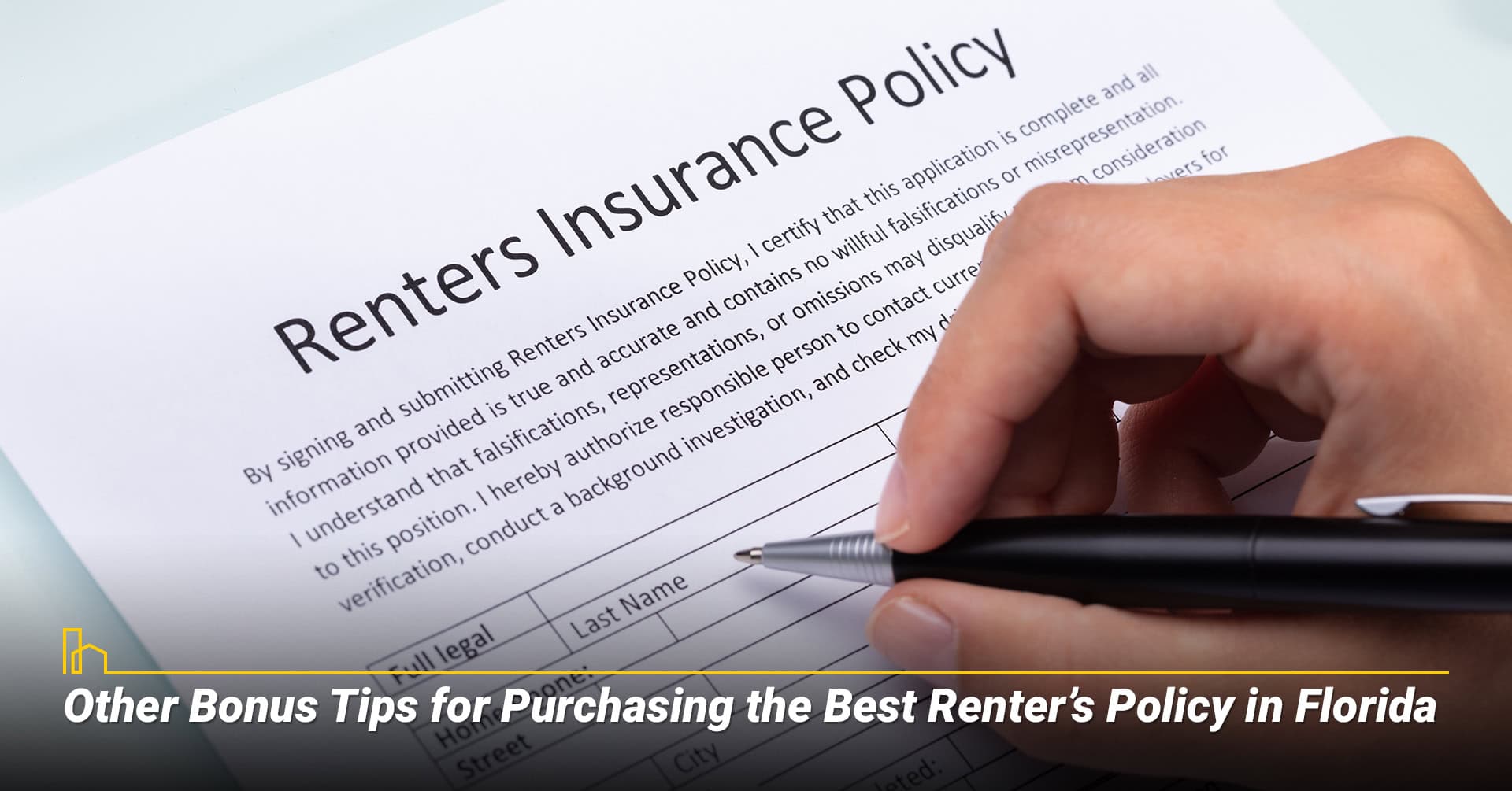
- A. Increase Your Deductible: Opt for a higher deductible that can lower your monthly premiums.
- B. Look for Discounts: Many companies offer discounts for simple upgrades, like installing security systems or smoke detectors.
- C. Review and Update Your Policy Regularly: As you acquire more belongings or as your circumstances change, be sure to update your coverage to reflect these changes.
Conclusion
Securing renter’s insurance in Florida is more than just an advisable financial decision; it’s a necessary step in safeguarding your personal belongings and protecting yourself from potential liabilities. The unique environmental and climatic challenges of the Sunshine State, marked by frequent hurricanes and the ever-present risk of flooding, make it imperative for renters to have a comprehensive policy that adequately addresses these risks.
Choosing the right renter’s insurance requires careful consideration of your personal needs, thorough research into various insurance options, and an understanding of the specific coverage nuances that are critical in Florida. Invest time in comparing policies, consulting with insurance professionals, and evaluating the credibility of insurance providers, to find a policy that fits your budget and comprehensively covers all of your possible risks.
Remember, renter’s insurance is not just about replacing possessions; it’s about ensuring stability and peace of mind in the face of unexpected events. As such, Florida renters should view insurance as an essential part of their rental strategy, ensuring that they can recover quickly from losses and continue enjoying their home with minimal disruption.
With the right renter’s insurance policy, you can face the unpredictability of life in Florida with confidence, knowing that you are well-prepared to handle anything that comes your way.
Rental Property Insurance for Landlords — Why It’s So Important
As a rental property owner, you have a lot at stake. Carrying adequate insurance for rental properties is what ties it all together. That also presents an equally appealing chance for you to create additional income and equity, and you…























